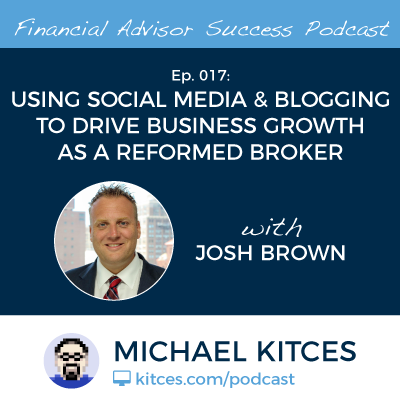Virtually every practice management study for financial advisors indicates that most advisors generate most of their growth through referrals, and that CPAs are a good "Center Of Influence" (COI) for generating those referrals. Except in practice, most financial advisors struggle to actually generate any referrals from CPAs, and referrals given to CPAs – in the hopes of reciprocal CPA referrals in return – often feels like a long walk down a frustrating one-way street.
In this guest post, Dave Zoller - a financial advisor who previously worked in a CPA firm – shares his perspective on what it actually takes for financial advisors to generate referrals from CPAs, how most advisors fail to generate referrals due to a lack of differentiation (from all the other advisors who read the same studies and are asking for the same referrals), and how to establish a proactive relationship with CPAs – that can actually generate referrals – by first working with them proactive to help solve the common problems that arise when they're preparing tax returns for (your joint) clients.
In fact, Zoller suggests that the best way to cultivate a referral relationship with a CPA is to start by deepening the relationship with the CPAs of your existing clients, where you already have a natural introduction – your common client whom you both serve. By showing how effectively you work with the CPA of your existing (joint) clients, the more encouraged the CPA will be to refer new clients to you!
So whether you've been wondering how to break into the world of generating referrals from CPAs, or have been frustrating by months or years of referring out clients to CPAs and waiting fruitlessly for reciprocal referrals that never seem to come as desired, I hope you find this guest post from Dave Zoller helpful to understanding what you need to do to break through from here!

 Welcome back to the eighteenth episode of the Financial Advisor Success podcast!
Welcome back to the eighteenth episode of the Financial Advisor Success podcast! Welcome back to the seventeenth episode of the Financial Advisor Success podcast!
Welcome back to the seventeenth episode of the Financial Advisor Success podcast!
